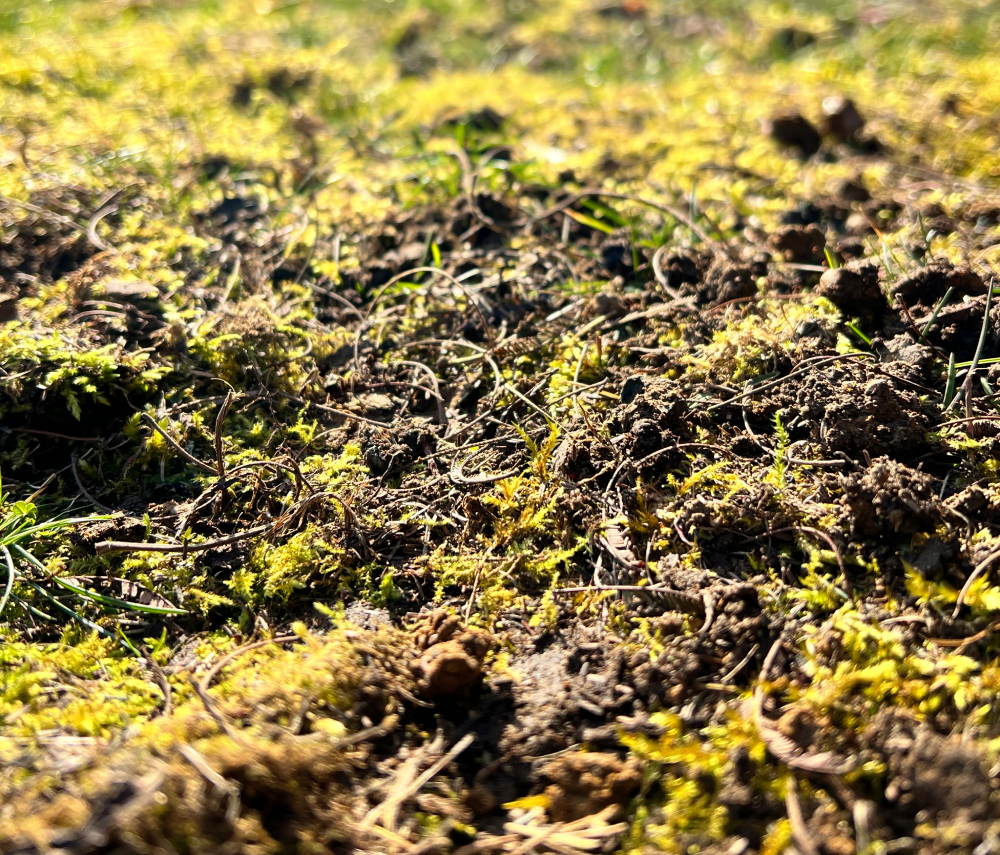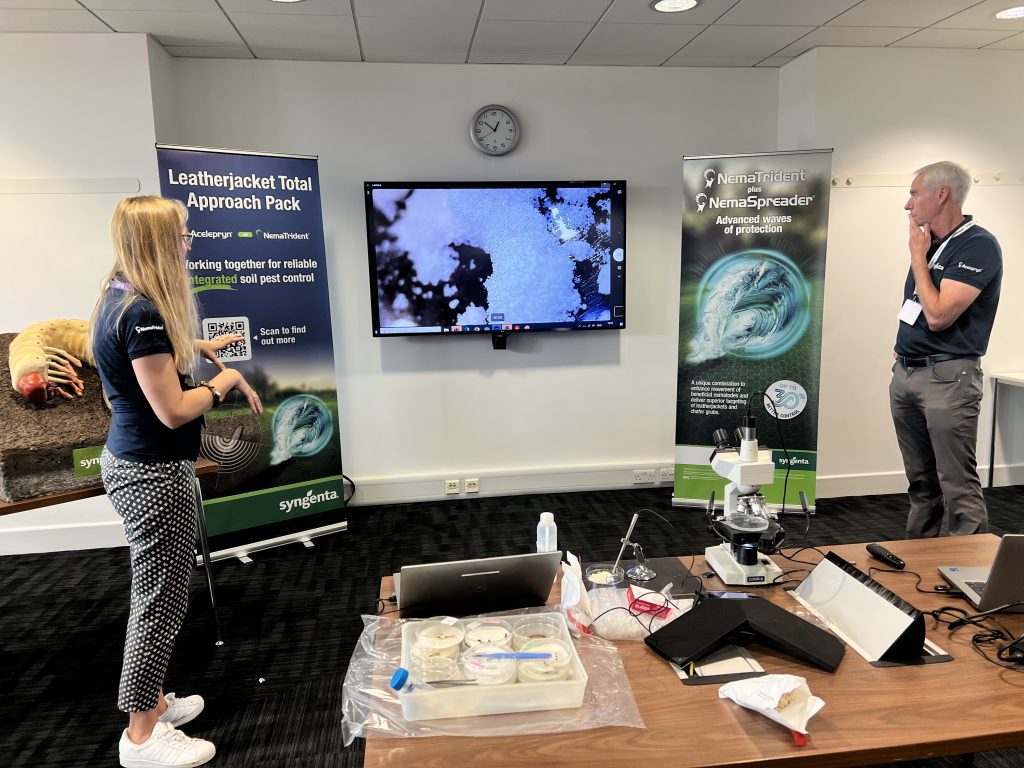
a lawn that has suffered from grub damage
Important progress in the control of destructive lawn grubs
Leather jackets (crane fly larvae) and chafer grubs (June bug larvae) are destructive turf pests that can cause extensive lawn damage. For many years there has been limited options for the control of these lawn pests. Until now that is. My team and I visited one of the world’s leading research centres to learn about the development, licencing, and use of a new product specifically for the control of these challenging insects.
Syngenta is one of the world’s leading agricultural companies, aiming to improve sustainability, quality, and safety through the products they develop. It spends around £940 million a year in research and development. Some of this is conducted at Jealotts Hill Research Centre, where 800 employees are working tirelessly to develop new plant protection products (formally referred to as pesticides or insecticides). This umbrella term also includes biological defences against pests and diseases.
Developing a new pest control
The scientists at Syngenta look to discover active ingredients useful in the control of diseases, weeds, fungi, insects, and nematodes, or to manage plant stress and yields. Once they have identified this, they then ask five key questions; does it work, is it ours, can we make it economically, is it safe, and will people buy it?
So, let’s look at some of those key questions more closely. Firstly, ‘does it work?’. Extensive lab tests and then field trial tests will be conducted to check how effective the product is, what dose works best, when it should be applied, which formulation works best, and whether there is any resistance of the product built up by the target pest or disease.
Understanding the answer to ‘is it ours?’ is very important. It can take many years to develop a new product, the ability to gain a patent on that product, and then to commercialise it, is the justification in the investment to develop it.
‘Can we make it?’ and ‘Will it sell?’ really do matter. The production process needs to be safe, and the waste it produces safe too. Manufacture needs to be scalable. The product needs to store well and be able to be transported through the distribution chain. It needs to have a suitable shelf-life when it reaches the end user. The price needs to fit the scale of the problem. Priced too high and it just won’t sell. So, production and sale price need to meet margin requirements and justify the development costs.
And finally, ‘Is it safe?’. Probably the most important question to prove the answer to. How are humans and other species affected by it and is it safe for water courses. Where does it go after it’s been used; does it bond to organic matter and how rapidly does it degrade in soil? How does it break down once used? Only when the scientists can answer all of these questions satisfactorily will a product be considered for licencing and in the case of the product to control lawn grubs, that process has taken over 20 years!

learning the science behind how nematodes work on grubs
Licencing new pest control products
As a professional lawncare company, it’s really important to us that everything we use in your garden is safe for everything that uses your garden. Not just you, your family, and pets, but also wildlife too. We need to be safe, and nature needs to be protected. The reason why these products are safe is the effort put into their development and testing. Their safety is proven and that is why they have been granted a licence for use. It is essential that the instructions for use are adhered to and that is why its essential that users are licenced and trained in how and when products should be applied.
It’s essential that licenced products are used responsibly, failure to do so can be harmful, may result in resistance to the product from the target and could result in their withdrawal. The label must be followed and the people applying the product must be appropriately trained and licenced. Any business applying plant control products in your garden must, by law, be licensed to do so – even your local gardener! We ensure our staff are fully trained and licenced, and we continually update their training. We are also members for the government BASIS Lawn Assured scheme, which monitors best practice and audits members to ensure they are compliant. Don’t risk using untrained operators such as inexperienced gardeners or odd-job people.
Find out more about our services that control leather jackets and chafer grubs here > Lawn Grub Control Services in Hampshire and Sussex

 Established 2016
Established 2016



